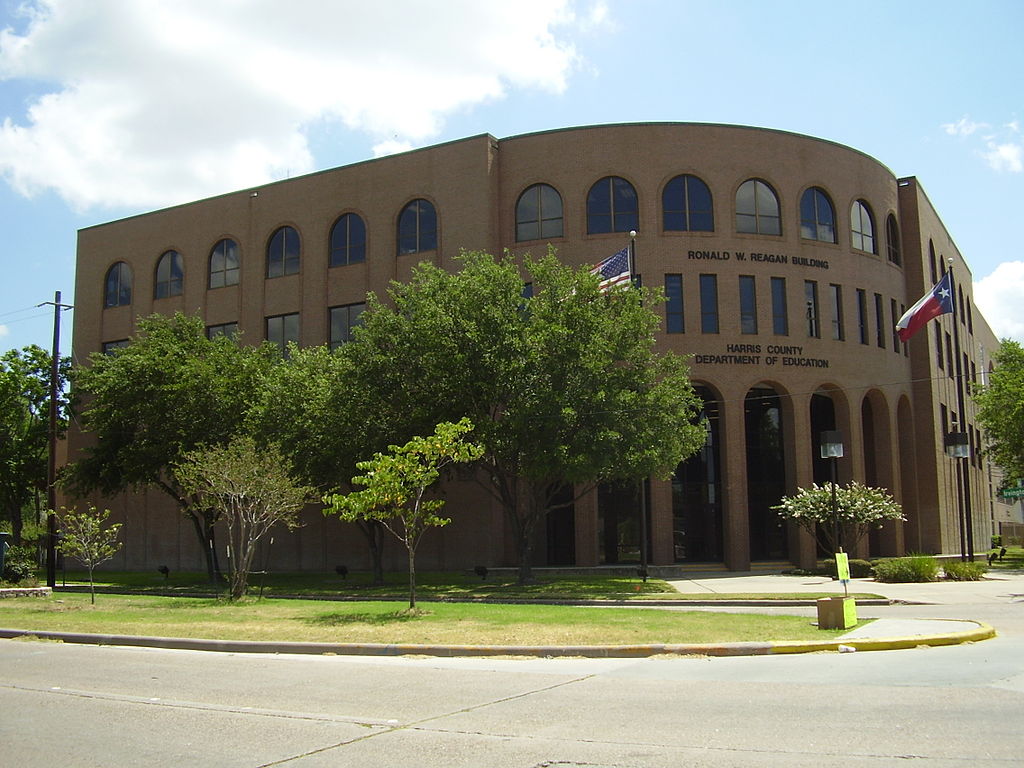Harris County Property Tax

Harris County is the largest appraisal district in Texas. Property taxes in this county are based on several factors and calculations can be complex. Here are some things investors and homeowners need to know about property taxes in Harris County.
6 Things Investors and Homeowners Need to Know About Harris County
- How Property Tax is Calculated in Harris County
- Tax Rates
- When Property Taxes are Due
- How to Pay Property Tax
- Ways to Lower Tax Liability
- Property Tax Reform
Harris County is the largest appraisal district in Texas, with a property tax roll worth roughly $575 billion spread across 1,777 square miles of land. Over 4.653 million people live in Harris County as of 2017. Houston is the biggest city in Harris County, followed by Katy, Spring, Pasadena, Humble, Cypress, Baytown, Tomball, Kingwood, and La Porte.
Property taxes collected in Harris County comprise the majority of revenue for the county. The county reportedly collected over $1.9 billion in property tax revenue for the 2018 fiscal year. These funds are then dispersed to the taxing units across the county. Revenue raised by the county goes towards school districts, upkeep, and repair of roads, maintenance, government assistance programs, emergency services, and more. You may notice MUD taxes, which stands for Municipal Utility Districts. These taxes pay for the drainage, water, and sewage in the county.
6 Things Investors and Homeowners Need to Know About Harris County
Texas does not have a state income tax, which impacts the ways that local governments can raise money. Property tax in Texas plays a larger role in government budgeting than it might in other states. As a result, property taxes in Texas may appear to be higher than in some other states. However, a direct comparison is difficult since the tax laws can vary widely between states and counties.
1. How Property Taxes are Calculated in Harris County
Property taxes are ad valorem taxes, which means they are based on the value of the property appraised. Real estate, residential and commercial property—as well as personal and business property—can all be assessed and taxed. Property taxes are just some of the real estate taxes a property owner may face.
Each year, the Harris County Appraisal District will appraise the value of each property in the county. In some cases, this can be determined from transactions filed with a county clerk. Changes in market conditions can impact the value of a property, as well as factors like wind damage and flooding. The purpose of the appraisal district is to determine the current taxable value of a property and to apply any qualifying exemptions, adjusting the taxable value as necessary.
Property may also be assessed when it changes owners or has improvements. A taxpayer or taxing unit can dispute the assessed value once the appraisal district finishes the annual appraisal roll. Disputing the assessed property value requires filing a written notice which can be mailed or delivered in person. These disputes are handled by the Appraisal Review Board (ARB). The ARB resolves protests of property tax appraisals according to the Texas Tax Code and other state statutes. If a taxpayer does not agree with an Appraisal Review Board ruling, they may be able to appeal the decision.
Be aware that there are time limits and deadlines involved in the appeal process. Due to the complex nature of property taxation in this county, it may be a good idea to consult with a tax professional to learn what options are available to you. A tax attorney can be especially helpful if you own a business or commercial property (or other income-producing property). Disputes over appraised values or tax rates must be raised with the appropriate district or review board and not through the Harris County Tax office.
2. Tax Rates
Tax rates in Harris County are set by local tax units and applied to property in their jurisdiction. To calculate the tax rate, each taxing unit determines the budget it requires for the tax year. This budget of the amount needed is then divided across the taxable property in Harris County to determine the tax rate to apply to each parcel.
Many areas in Texas are experiencing rapid growth. As a result of this growth, property values are increasing quickly—which leads to higher appraised property values and higher property taxes. In tandem, local government are facing increased demands and must also increase services to a growing population, such as building and repairing new roads, providing emergency services, and managing the increased demand on public services. Due to the rapid growth, many are also seeing tax rates increase along with property values. Local tax levy and property tax collection from residents of school districts allow tax dollars to be invested back into their community. However, rapid growth is quickly leading to property taxes that can be unmanageable. For example, the Houston Independent School District (ISD) adopted a tax rate of 1.1567 in 2012 which increased to 1.2067 in 2018. Keep in mind that the Houston ISD is the largest public school system in Texas and the seventh largest in the country, with over 238 schools and more than 21,000 students.
Property taxes make up almost half of county revenue, which is why they are seeing such drastic tax increases. Any parcel of property may be located in multiple taxing unit jurisdictions, which will result in a combination of applied tax rates. These rates applied to the property value results in the property tax amount billed to the taxpayer.

3. When Property Taxes are Due
Property taxes are determined on January 1st each year. Taxpayers have until April 30th to submit applications for exemptions, such as the homestead exemption. The Appraisal Review Board typically begins to review formal disputes by May 15th. After the ARB has finished deliberating, they pass the certified appraisal roll to the various local taxing units. From September to October, these elected officials determine and adopt tax rates to fund their budgets. The Tax Assessor-Collector will collect the tax rates from the taxing units and send out tax bills to property owners in the fall.
Taxpayers typically have until January 31st of the following year to pay their taxes. Property taxes are considered delinquent on February 1st when they start collecting penalties and interest. Taxing units can also start collection processes on this date. Be aware that even if you did not receive a bill or a tax statement, you may be required to make a payment before the deadline. It is the property owner’s responsibility to pay all required taxes, regardless of whether you received a notification.
Penalties for failing to pay property taxes in Harris County can be hefty. A penalty of up to 12% can be applied, depending on how long the bill is left unpaid. Interest is added each month at a rate of 1%, accruing for as long as the tax is delinquent. Also, if a taxing unit employs an attorney to help collect the tax debt, another 15% penalty can be applied. Business personal property taxes left unpaid by April 1st will be assessed a 20% fee, which may apply to rental property and residential mobile homes. The Tax Assessor-Collector is unlikely to waive these penalties and interest charges.
4. How to Pay Property Tax
There are several ways to pay property taxes in Harris County. Payment portals can be found online through the Tax Assessor-Collector website. Entering incorrect information when processing a payment can lead to a $30 fine. Taxpayers can also pay with cash, check, money order, debit card, or credit card at one of the many Tax Office locations across Harris County. You can also mail checks or money orders to the County Tax Assessor-Collector. Be aware that you may be charged a convenience fee when paying by credit card or debit card.
Taxpayers who are unable to pay their property taxes in full can consider a variety of options. One such option is to request an installment agreement from the Tax Assessor-Collector. The longest installment arrangement is for 12 months. By making an agreement to pay periodically, you can help lower the penalties applied—such as avoiding the attorney collection fee, which can add 20% to a delinquent tax debt.

5. Ways to Lower Tax Liability
There are a few ways to lower your property tax liability. When the property value is assessed each tax year, you can protest the appraisal value and plead a case before the Appraisal Review Board. Texas tax code requires the equal tax treatment of similar properties, so if you can show that your property taxes are too high, they may be reduced.
Another option for lowering your tax liability is the homestead exemption, which can be used when the property is the taxpayer’s primary residence. Many landlords and real estate investors who own residential assisted living facilities and apartment complexes could benefit from this exemption if one of the rental units is used as the owner’s permanent residence.
Those who are over 65, disabled, a surviving spouse, or disabled veteran can also apply for this exemption with additional benefits. Property tax abatement for local businesses is available under the Texas Property Redevelopment and Tax Abatement Act. Those businesses which provide a certain number of jobs for the county can also benefit in some cases.
6. Property Tax Reform
The need for tax reform to control rapidly increasing property taxes has resulted in the recent passing of Senate Bill 2. This legislation is designed to make property tax rates more available and understandable. The bill also limits how local taxing governments can increase property tax. Previously, any increase over 8% required voter approval. Now, Senate Bill 2 caps annual increases at 3.5% for most tax units. This allows taxpayers an opportunity to dispute a proposed tax increase. The tax reform also helps taxpayers protest appraisal increases.
How Does Harris County Compare to Other Cities in Texas and the United States?
Harris County property tax and property taxes in Texas tend to appear high in comparison to counties in other states. In addition, these rates have seen increased growth over the years, resulting in the passing of property tax reform. Other states have also passed property tax reform to limit the growth of property taxes when they start to disproportionately impact property owners. In California, voters set a limit on the state assessed property tax as well as limits on how fast appraisal values can increase.
Property taxes are so high because Texas currently does not collect income tax to offset county revenue requirements. The different tax codes between states can make it difficult to compare property taxes. For example, flipping houses—buying a property to resell at a higher price, possibly after investing in improvements—is a strategy that will have various outcomes, depending on the state. California may have limited property taxes, but a capital gain on selling property is taxed heavily. While you may not be able to exempt any of the proceeds in California, in Texas you may be able to exclude some of the profit on a personal residence to save money.
Harris County Property Taxes
Property taxes in Texas are handled at the local level with no state property tax applied. In Harris County, the Harris County Appraisal District manages property assessment as well as provide exemptions for those who qualify, such as those over 65 and disabled veterans. Once the property is valued, a taxpayer can protest the appraised value before the Appraisal Review Board. The ARB will finalize the property roll and send it to taxing units across the county, who determine their budgets. The budget is used to calculate the revenue needed from property taxes, which are then converted into a tax rate for each property.
Since any given property can be in multiple tax jurisdictions at once, the property tax bill will indicate what taxing units are applying which rates. Due to the high rate of tax growth, tax reform has been passed to limit property tax growth. There are also many exemptions available for property owners, such as the homestead exemption, which can help lower a tax liability.
One great way to save on taxes is to reach out to a tax attorney for professional tax planning. An experienced tax advisor can help minimize the impact of property taxes as part of an overall strategy for long-term asset protection and estate planning.
3 Steps to Create an Invisible Investor Strategy
The greatest mistake that people make when it comes to asset protection for real estate is not understanding the risks that are waiting out there for them. This eBook reveals the structure you should follow to ensure your hard earned money is protected from frivolous lawsuits and costly tax mistakes.



